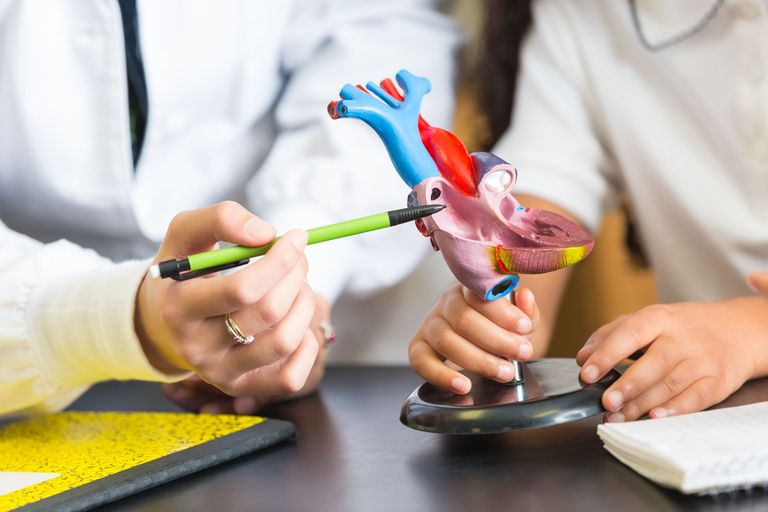what is the cure for mitral valve prolapse
Most people with mitral valve prolapse have no symptoms. A stressful situation such as childbirth, a change of job, or a viral illness can cause symptoms that may include the following:
Irregular heartbeat or palpitations, especially while lying on your left side.
Chest pain lasts from a few seconds to a few hours and is usually not related to myocardial ischemia (i.e., a heart attack is not threatening).

Fatigue and weakness, even after light exercise
Vertigo
Black eyes when getting up from a chair or bed
Shortness of breath
Low energy levels are often diagnosed due to chronic fatigue syndrome.
Causes of mitral valve prolapse
For most people, the cause of mitral valve prolapse is unknown. Some people may inherit the disease.
Marfan syndrome is an inherited connective tissue disorder that causes abnormally long organs, loose joints, and aneurysms in the aorta, the heart’s main artery.
Many people with mitral regurgitation have nervous system imbalances. Autonomy is the nervous system that controls the body’s involuntary functions such as breathing and heart rate. This condition can lead to many symptoms that are usually not serious.
Symptoms include:
- Panic
- Anxiety
- Fatigue
- Migraine headache
- Irritable bowel
- Depression
Is mitral valve prolapse dangerous?
See your doctor if symptoms are constant or frequent, such as chest pain, palpitations, or dizziness.
Contact your doctor if you are diagnosed with mitral valve prolapse, if your symptoms worsen or go away, or have congestive heart failure symptoms such as swelling or shortness of breath. This means that blood leaks from the mitral valve into the left atrium.
People with heart disease should talk to their doctor about using antibiotics to prevent heart infection during surgery or dentistry.
Women who think they are pregnant should see a doctor.
If any of the following occur, go to the hospital emergency department:
The symptoms of heart failure suddenly get worse.
Chest pain that does not go away.
Symptoms of arrhythmias such as dizziness, blurred vision, fainting, or the persistent and uncomfortable feeling of rapid heartbeat
Detection of mitral valve prolapse
Your doctor may suspect mitral valve prolapse by listening to your heartbeat through a medical device. Abnormal movement can produce a distinct sound called a click. If there is a problem with mitral regurgitation, your doctor may hear a heartbeat when the blood returns to your left atrium.
However, a definitive diagnosis of heart valve prolapse requires an echocardiogram. This test is a kind of heart ultrasound.

In this case, the doctor can better observe the valve’s abnormal movement due to the heartbeat in front of the monitor. In the presence of mitral regurgitation, it is also seen on the same echocardiogram.
Definitive treatment of mitral valve prolapse
Heart valve prolapse is usually not a problem for anyone. However, people who have difficulty returning blood due to a mitral valve prolapse can benefit from surgery and replace the damaged valve.
For people who suffer from heart failure and return due to a blood drop, surgery may also be the best option. But mitral valve prolapse by itself, as it does not cause people problems, does not require special treatment.
If there is no sign of blood returning on the echocardiogram, valve prolapse alone can not be dangerous. The best treatment may be different for each person, but all patients should follow these instructions as directed by their doctor:
Sport
Use painkillers on your doctor’s advice
Stress reduction techniques
Avoid caffeine and other heart stimulants
Note: Beta-blockers, which are drugs to reduce heart rate, can help people who have a high heart rate or tachycardia (takicar. However, the use of this drug should be done with a doctor’s prescription.
Mitral valve surgery
In rare cases, increased valve leakage or severe prolapse may require surgery. Over the past 10 years, advances in cardiac surgery have shown less need for artificial replacement valves.
Pills to treat mitral valve prolapse
Medications can help treat mitral valve prolapse associated with heart rhythm disorders or other complications. Some medications prescribed for mitral valve prolapse include:
Beta-blockers: These drugs prevent irregular heartbeats by slowing down the heart rate, which lowers blood pressure. Beta-blockers help loosen and open blood vessels to improve blood flow.
Cardiac arrhythmia: If you have a cardiac arrhythmia, your doctor may prescribe propafenone, sotalol (beta pass, Surin, sotilysis), flecainide, and amiodarone to treat it. These drugs help control your heart rhythm by normalizing electrical signals in the heart tissue.
Aspirin: If you have mitral valve prolapse and a stroke history, your doctor may prescribe aspirin to reduce the risk of blood clots.
Blood thinners: If you have atrial fibrillation, a history of heart failure, or a history of stroke, your doctor may prescribe a blood thinner to prevent blood clots. These include warfarin (Coumadin, Shanton), heparin, dabigatran (Paradoxa), rivaroxaban (Zarleto), apixaban, and adoxaban (Savisa). Blood thinners can have dangerous side effects and should be taken exactly as directed.
Exercise suitable for mitral valve prolapse
The heart is a muscle, and, like any muscle, it gets stronger with exercise. Aerobic exercise strengthens the heart. Take 30 minutes of walking and cycling 5 days a week to prevent heart failure. Note that if you feel a vibration or lightheadedness, or weakness, slow down.
Functional foods for mitral valve prolapse
Diet can significantly reduce or worsen mitral valves prolapse symptoms, such as chest pain, palpitations, and fatigue. Diet can also prevent heart complications and other health problems by relaxing the heart valve. The diet for people with mitral valve prolapse includes foods that contain a variety of vitamins and minerals. Magnesium and vitamin B6 have a significant effect on preventing and improving mitral valve prolapse. Proper nourishment for mitral regurgitation include:
- Fruits such as avocado, banana, fig
- Whole grains
- Beans
- the vegetables
- Nuts
You need to understand that certain conditions can make heart disease worse. To improve your illness, be sure to avoid the following foods:
- Coffee
- Chocolate
- Carbonated drinks
- Sweets
- Fast foods
Complications of mitral valve prolapse
In general, in many cases, the disease can not interfere with a person’s everyday life, but in acute cases, it can have the following side effects:
Heart valve failure
Irregular heart rhythm
Heart valve infection
Heart palpitations and shortness of breath
Mitral valve prolapse and pregnancy
Although pregnancy is not contraindicated for women with mitral valve prolapse, a cardiologist should monitor these mothers during pregnancy, as this condition may worsen during pregnancy.
In contrast, mitral valve stenosis can be a problem in pregnancy and lead to miscarriage.
Do not do these exercises
Although exercise has always been a well-known health factor, in general, patients with dementia from a series of exercises include:
1- Swimming
2- Roping
3- Running fast
4- Weightlifting
Prevent mitral valve prolapse
Having a proper diet and exercise can help prevent a variety of heart diseases. Following these tips can prevent mitral valve prolapse and sag:
1- Blood pressure control
2 – Quit smoking
3- Having a healthy diet. Food does not directly affect mitral regurgitation. Eat foods low in saturated and trans fats, low in sugar, common salt, and refined grains such as white bread. Eat a variety of vegetables and fruits, whole grains, and proteins such as lean meats, fish, and nuts.
4- Maintaining a healthy weight. Set your weight to the level recommended by your doctor.
Stop drinking alcohol. Excessive alcohol consumption can cause cardiac arrhythmias and worsen your symptoms. Excessive alcohol consumption can cause cardiomyopathy, which weakens the heart muscle and leads to mitral valve insufficiency.
also read:


